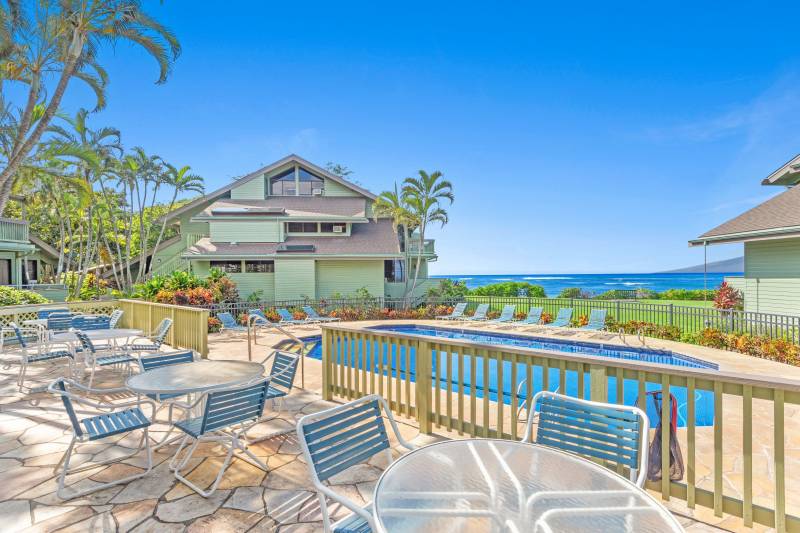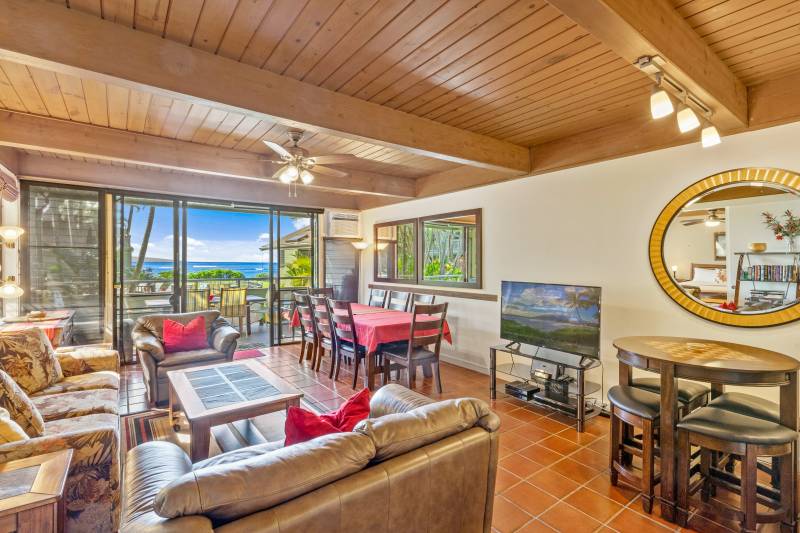5 Things to Know Before You Buy a Leasehold Property in Hawaii
Thinking of buying property in Hawaii? Understanding the difference between leasehold and fee simple ownership is essential. Leasehold property ownership in Hawaii was first introduced in the 1960s, which allows buyers to purchase a home or condo built on land owned by another party. Here’s how leasehold works, and what you should know before buying a condo like Kahana Outrigger or other leasehold developments in Maui and Oahu.
What is a Leasehold Property in Hawaii?
Leasehold property is a building purchased on land owned by another party. Fee simple ownership, on the other hand, implies that an owner of a condo also has an undivided interest in the common elements of the development, including the land the condo sits on. In the case of leasehold property in Hawaii, the land belongs to a third party, “the lessor,” and is leased (under precise terms) to the condo owners.

Kahana Outrigger, oceanfront development
5 Things to Know Before You Buy a Leasehold Property
1. What is the Duration of the Lease?
For example, the Kahana Outrigger lease expires in 2071, which allows for 30-year financing. Property values tend to go down as we approach the termination of the lease. The lessor and the lessees have the option of extending a lease or reaching an agreement to convert the property to fee simple.
2. What Happens When the Lease Ends?
If the lessor and the lessees have not agreed on a lease extension or a fee conversion, the lessor (landowner) has the right to repossess the land and all the improvements on it.

3. What is Monthly Rent and the Schedule of Future Increases?
Most leases have precise dates when lease rents are renegotiated and have a cap on future increases, based on land values at the time of renegotiation.
4. Are There Fee Simple Conversion Opportunities?
In Hawaii, leasehold to fee simple conversions can increase a property’s resale value and eliminate ground rent. Such a conversion occurs when the landowner (lessor) sells the land to the condo owners. Depending on the size of the land and the number of units in a development, the fee conversion for a 1bd unit can vary from $30,000 to $100,000. One can finance the cost of such conversion.
5. Does Leasehold Ownership Make Financial Sense for You?
Leasehold properties are more affordable than fee simple ones. When buying a leasehold property, you may be able to afford a larger unit or a better location. It may also allow you to reduce the initial investment, but you have to be financially prepared for the lease rent payments and future increases.
Want to Know More?
If you’re interested in learning more about leasehold homes for sale or other homes for sale in Hawaii, feel free to reach out to us.

Jeremy
July 21, 2021
Very helpful article, but there are a few deeper question that I had after reading this. Is the lessee able to remove the entire or part of the house that is on the leased land before their lease ends? And is there a law that gives the lessee the first right of refusal if the lessor is going to sell the property?
Thanks for taking the time to write the article and hope this reaches you.
Jeremy